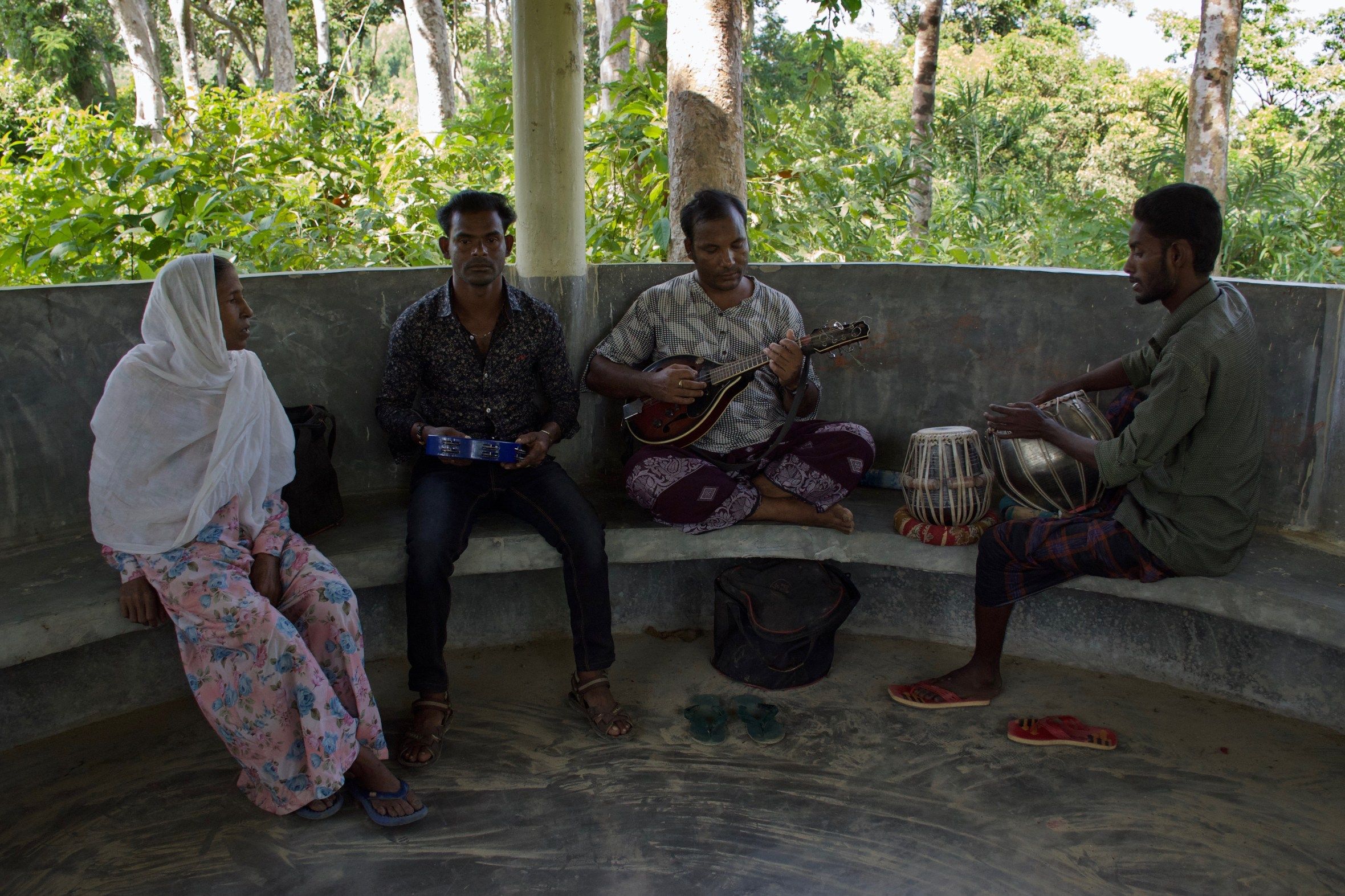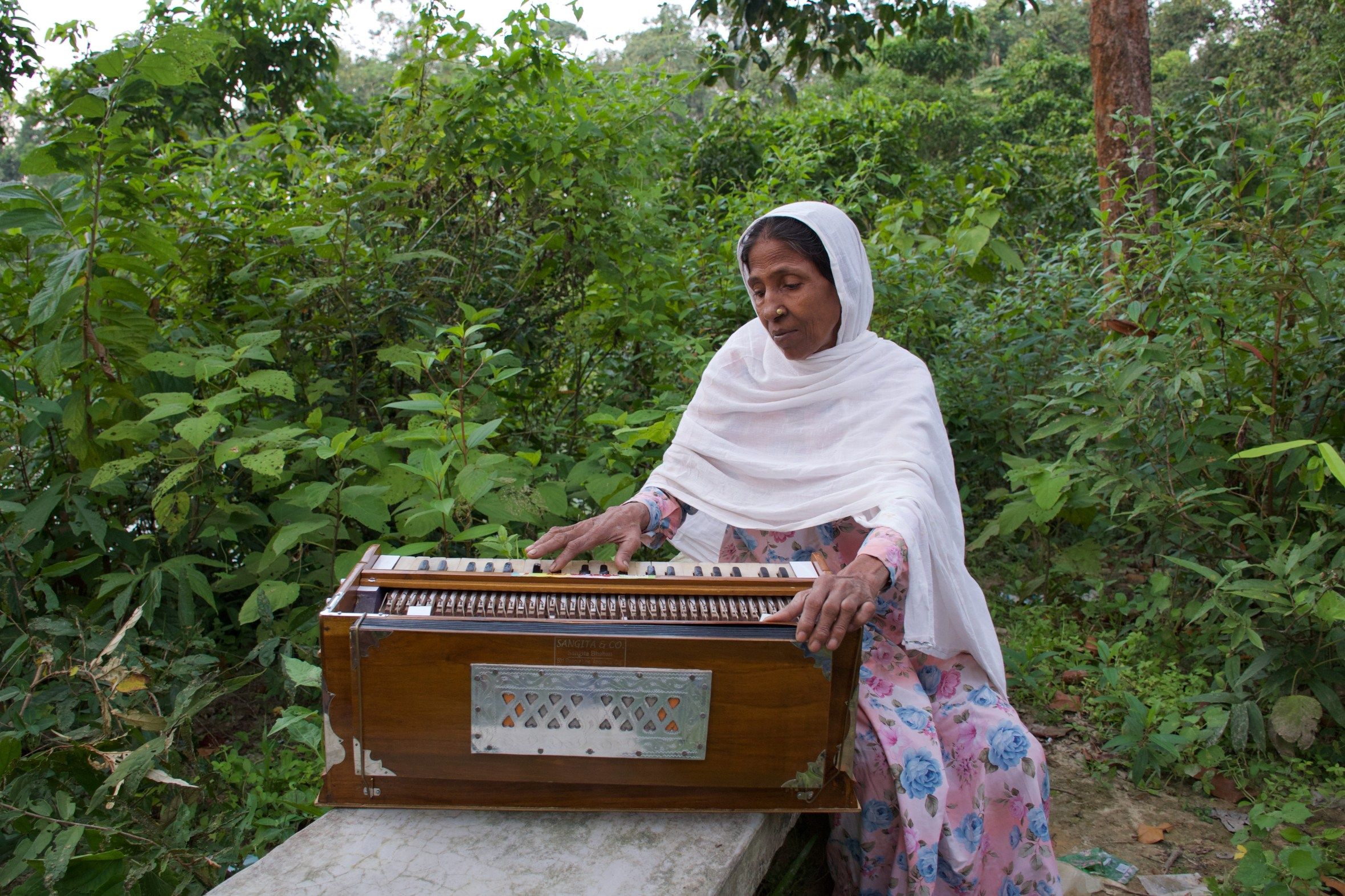Myanmar is made from Rohingya blood, Mustava says.
“Two of my sisters were cut into pieces,” she adds.
The incident occurred during a sweeping crackdown by Myanmar’s military in 2017. Mustava says she learned about what happened to her sisters through Facebook, while she was scrolling through someone’s cell phone. Their names were Fatima Khatun and Lutfun Nesa, she says with tears in her eyes.
By the time she found out they had been killed, she had already spent nearly two decades living apart from them. She fled Myanmar with her husband and their newborn son in 1990. During that escape, robbers attacked them on the beach with the baby in her arms, she says.
It was during her first year living in Bangladesh that Mustava learned her first piece of music, a Bengali song.
Mustava’s husband took on odd jobs and she paid the man next door for harmonium lessons. She was 30 then.
Now 59, Mustava sings and plays with an all-male band. The performances are mainly organized by aid organizations, and girls sometimes approach Mustava with curiosity and admiration.
“There are people who do not like music, especially when women do it,” she says. “But people like us, we value music because it refreshes our soul.”
No one has ever directly criticized her for being a female musician but she has still been challenged by other refugees in the camp. “Once, my harmonium was taken away,” she says.
A committee of religious leaders confiscated it, she says. “Whose harmonium is this?” the mullahs asked her. Mustava says she was afraid to give them a truthful answer, so she told them it belonged to her friend. When the mullahs found out the instrument was hers, she says they threatened to burn it.
“This is not a place where you can do this type of thing,” she says the men told her.
Mustava decided to sell off the gold stud that she wore in her nose. With 700 taka (about $8), she bought her harmonium back.
Eventually, she had to sell the instrument because her family needed the money. “I bought food for my family,” she says.
Today when she wants to play the harmonium, she goes to a shrine in her refugee camp. Sometimes she teaches children there how to press its keys.
Mustava says she still misses her homeland, despite memories of painful moments she witnessed as a Rohingya, a Muslim minority in the Buddhist-majority Myanmar. In her village in Akyab township, she saw authorities beat children and steal cows.
Her remaining brother and sister, Nur Islam and Nur Jahan, still live in Myanmar, she says. It is unclear if they are safe or in good health.
Mustava and her husband have three sons and one daughter in Bangladesh. One of her sons supports the family through his salary as a teacher.
“I’m thankful for shelter here,” she says.

